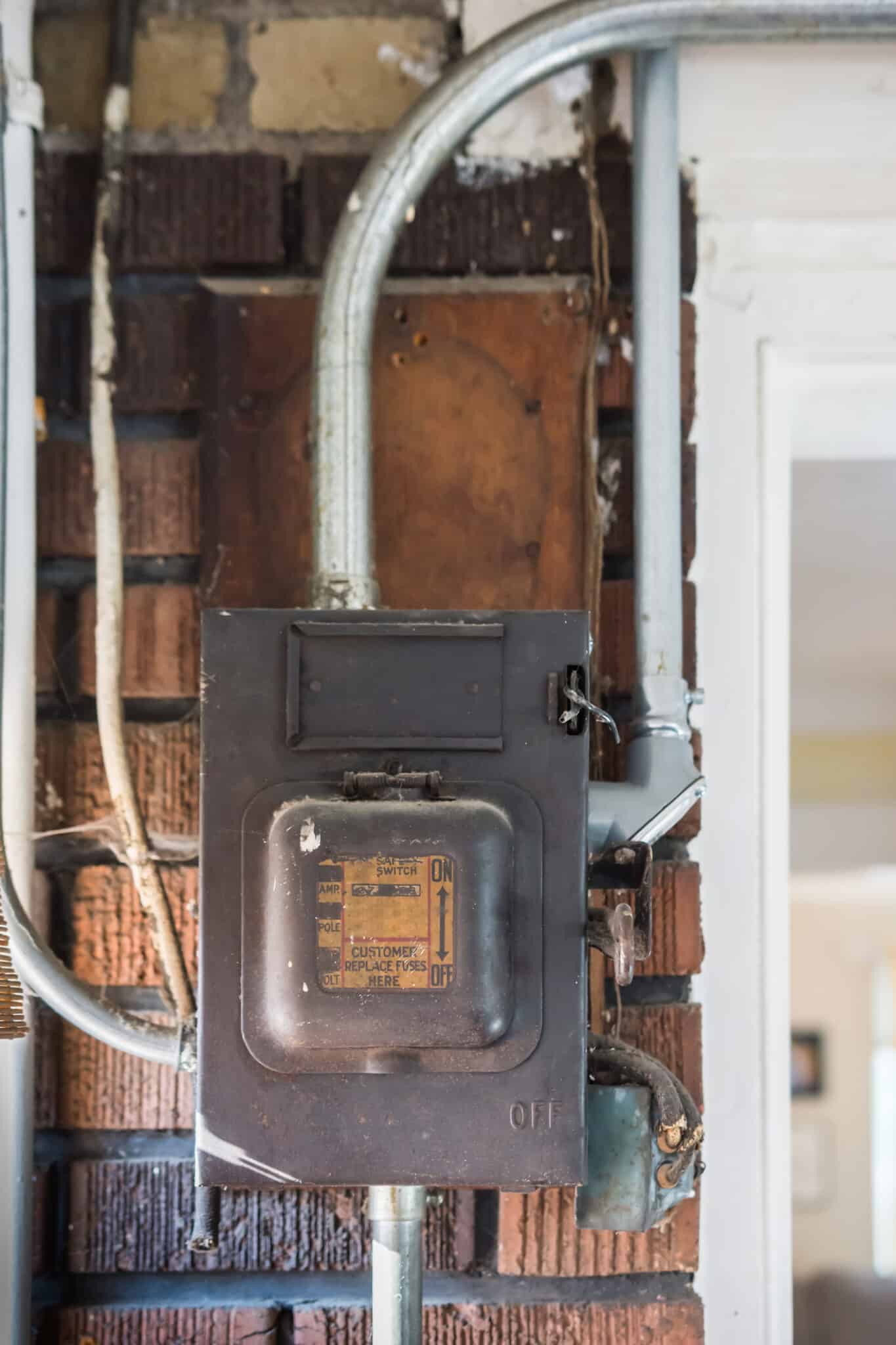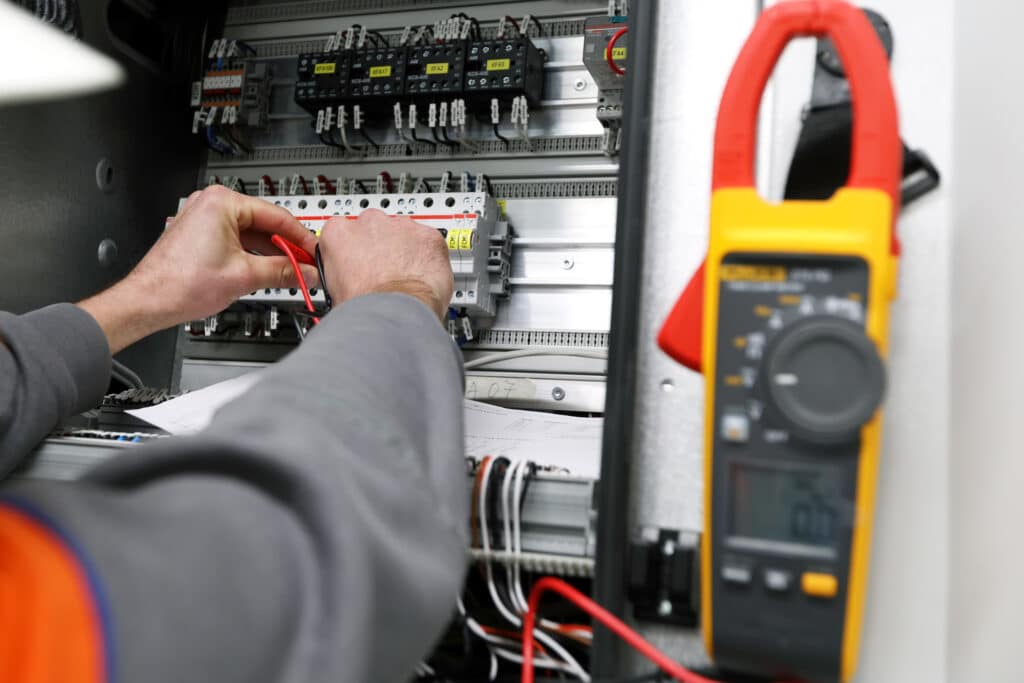For homeowners in Wilmington, DE, understanding the essentials of electrical inspections is crucial for maintaining a safe and compliant living environment. These inspections are not just a bureaucratic formality but a critical safety procedure that ensures all electrical systems and components meet legal standards and function safely. By identifying potential hazards, electrical inspections help prevent electrical fires, shocks, and other dangerous situations, ensuring the well-being of your home and family.
Electrical inspections are particularly important in areas with older homes, such as Wilmington and nearby Newark, DE, where aging electrical systems might not meet current safety standards. During these inspections, a qualified electrician examines the electrical panels, wiring, outlets, and appliances to ensure everything is up to code. This process not only enhances safety but also improves the efficiency of your home’s electrical system, potentially saving on energy costs.
For those planning to buy or sell a home, electrical inspections are a vital part of the transaction process. They provide both buyers and sellers with peace of mind by disclosing the condition of the home’s electrical system. This transparency can protect you from unexpected costs and ensure any necessary repairs are addressed before they become major issues.
Understanding what to expect during electrical inspections can make the process smoother and less daunting. Homeowners should prepare for the inspector’s visit by ensuring clear access to all electrical components. The inspector will typically check the condition of wires, test for proper grounding, and inspect the electrical panel for any signs of wear or damage. By staying informed and proactive, homeowners can navigate electrical inspections effectively, ensuring their homes are safe, compliant, and well-maintained.
Understanding Electrical Inspections
Gaining a deeper understanding of electrical inspections is essential for homeowners in Wilmington, DE, and the surrounding areas like Newark, DE. These inspections are comprehensive evaluations conducted by licensed professionals to assess the safety and efficiency of a home’s electrical system. During an inspection, every component, from wiring and sockets to breakers and electrical panels, is thoroughly examined to ensure they comply with current electrical codes and safety standards. This thoroughness helps in identifying any potential issues that could lead to electrical failures or hazards.
The necessity of electrical inspections cannot be overstated, especially considering the safety aspects. Faulty electrical systems are among the leading causes of house fires and electrical accidents in homes. Regular inspections help in detecting deteriorations or malfunctions early, which in turn reduces the risk of catastrophic outcomes. By ensuring that all electrical installations and repairs meet the required standards, homeowners can significantly enhance the safety of their residences.
Homeowners should expect a detailed process when undergoing electrical inspections. Initially, the inspector will review the history of the home’s electrical system, including any upgrades or changes made. Following this, a physical inspection takes place where the electrician checks the integrity of wires, the functionality of the electrical panel, and the safety of outlets and fixtures. This might also include testing for proper grounding and bonding, crucial steps for preventing electrical shocks and fires.
Preparing for an electrical inspection involves several steps that homeowners can take to ensure a smooth process. It is advisable to provide the inspector with clear access to all electrical components by removing any obstructions. Additionally, compiling documentation related to previous inspections, installations, or repairs can be immensely helpful. By being well-prepared and informed, homeowners in Wilmington and Newark can facilitate efficient inspections, leading to safer and more compliant living environments.
The Importance of Electrical Inspections for Home Safety
The importance of electrical inspections in ensuring home safety cannot be overstated, particularly in areas like Wilmington, DE, and Newark, DE. These inspections are pivotal in identifying and mitigating risks that could lead to serious safety hazards. Electrical failures are not just inconveniences; they pose significant threats, such as fire hazards and electrical shocks, which can be life-threatening. Regular electrical inspections are a proactive measure that helps in detecting potential dangers before they escalate into more severe problems.
In Wilmington, where diverse architectural styles and varying ages of buildings converge, the role of electrical inspections becomes even more critical. Older homes, often admired for their charm, may harbor outdated wiring or overloaded circuits that modern electrical standards deem unsafe. During an electrical inspection, professionals meticulously evaluate these systems to ensure they do not pose any risk to the occupants. This is crucial in preventing the kind of electrical mishaps that are common in older structures.
Moreover, electrical inspections contribute significantly to the overall safety culture within a community. They serve as an educational opportunity for homeowners, enlightening them on the intricacies of their home’s electrical system and promoting awareness about maintaining these systems. This knowledge is invaluable, as it empowers residents to recognize signs of electrical problems early and seek professional help before issues worsen. Such community-wide awareness can drastically reduce the incidence of electrical accidents.
Lastly, it’s essential for homeowners to understand that electrical inspections are not a one-time requirement but an ongoing responsibility. As technology evolves and additional appliances become integral to daily living, the electrical demands on home systems increase. Regular inspections, therefore, become crucial to adapting these systems safely to new technologies. Homeowners in Wilmington and Newark can greatly benefit from embracing this practice, ensuring their homes remain safe, efficient, and up to date with current electrical standards.
Legal and Compliance Aspects of Electrical Inspections
In Wilmington, DE, and Newark, DE, adhering to legal and compliance standards during electrical inspections is not just a recommendation but a requirement. These standards are designed to ensure that all electrical systems in homes meet specific safety and operational criteria set by local and national electrical codes. Compliance with these codes is crucial as it not only ensures the safety of residents but also protects homeowners from legal liabilities that could arise from non-compliance.
Electrical inspections must be performed by licensed professionals who are trained to understand and apply these codes accurately. This is important because any oversight can lead to serious consequences, including potential fines and mandatory corrective measures. In some cases, failure to comply with electrical standards can even result in the denial of home insurance claims, should an electrical fault cause damage.
For homeowners in Wilmington and Newark, it’s beneficial to have a clear understanding of what these inspections entail legally. This includes knowing when inspections are required, such as during major renovations, after the installation of new electrical systems, or as mandated by local housing codes. Being proactive about scheduling these inspections can prevent the hassle of legal issues and ensure that electrical systems are always up to standard.
Moreover, electrical inspections also play a pivotal role in maintaining property value. A home that consistently passes these inspections is likely to be valued higher, as it assures potential buyers that the property is safe and compliant with all electrical regulations. This aspect of electrical inspections underscores their importance not just from a safety perspective but also from a financial and legal standpoint, making them an indispensable part of home maintenance and ownership in these cities.
What to Expect During an Electrical Inspection
When scheduling an electrical inspection in Wilmington, DE, or Newark, DE, homeowners can anticipate a systematic and thorough review of their electrical systems. The process begins with the arrival of a licensed electrician who will conduct the inspection. They will start with a visual assessment of all accessible electrical components, such as outlets, switches, and fixtures, to identify any visible signs of wear or damage. This initial step is crucial as it sets the stage for more detailed testing.
Following the visual checks, the inspector will perform a series of tests to ensure that all electrical systems function correctly and safely. These tests include checking the grounding system, testing circuit breakers, and ensuring that the electrical panel can handle the current electrical load. Such detailed testing is designed to uncover any potential issues that may not be immediately obvious from a simple visual inspection.
The next part of the inspection involves a more in-depth look at the wiring and safety systems within the home. The inspector will check for outdated wiring types like knob and tube wiring, which are common in older homes and can pose significant safety risks. They will also evaluate the sufficiency of smoke detectors and carbon monoxide detectors, ensuring they are well-placed and functional. This comprehensive approach helps in mitigating any risks that could lead to electrical fires or other hazards.
Finally, the inspector will provide the homeowner with a detailed report that outlines the findings of the inspection. This report will highlight any areas of concern, suggest necessary repairs or upgrades, and may offer general advice on maintaining the electrical system. For homeowners in Wilmington and Newark, this report is not only a reflection of their home’s current electrical safety but also a guide for future maintenance and improvements. This documentation is essential for ensuring that the electrical systems remain safe and efficient, aligning with ongoing safety standards and regulations.

Common Issues Uncovered During Electrical Inspections
During electrical inspections in Wilmington, DE, and Newark, DE, several common issues often come to light, reflecting the typical challenges homeowners face with aging or outdated electrical systems. One prevalent problem is outdated wiring, such as aluminum or knob and tube wiring, which can pose significant fire hazards if not properly maintained or updated. Inspectors frequently encounter overloaded circuits as well, where too many appliances strain the system beyond its capacity, increasing the risk of overheating and potential fires.
Another frequent discovery during electrical inspections is the lack of sufficient grounding and bonding. Proper grounding is essential to ensure safety by preventing potential electric shocks or fires. It is not uncommon for older homes to have inadequate grounding systems, which can be a serious safety violation. Additionally, inspectors often find DIY electrical work that does not meet the required safety standards, leading to a host of issues, including improper connections and the use of incorrect or substandard materials.
Issues with electrical panels are also a common find during these inspections. Many homes still operate with outdated panels that are not equipped to handle modern electrical demands, leading to potential safety hazards. In some cases, the panels may have damaged or loose connections, which can cause power fluctuations and increase the risk of electrical fires. Inspectors ensure that these panels are up to code and recommend upgrades or repairs as necessary.
Identifying and addressing these issues during electrical inspections is crucial for maintaining the safety and efficiency of a home’s electrical system. Homeowners in Wilmington and Newark are advised to take these findings seriously and undertake necessary repairs or upgrades promptly. A thorough electrical inspection not only helps in identifying existing problems but also in preventing future issues, ensuring that the electrical systems are safe, compliant, and capable of meeting current and future demands.
How to Prepare Your Home for an Electrical Inspection
Preparing your home for an electrical inspection in Wilmington, DE, or Newark, DE, can significantly streamline the process and enhance the efficiency of the inspection. Start by ensuring that all areas with electrical systems are easily accessible. This includes moving furniture away from wall outlets, clearing the space around the electrical panel, and ensuring that the attic or basement is reachable if necessary. Such organization not only facilitates a thorough inspection but also demonstrates compliance and cooperation from the homeowner’s side.
Next, it’s a good idea to gather all relevant documents related to your home’s electrical system. These might include records of previous electrical inspections, receipts for any repairs or installations, and warranties for electrical appliances. Presenting these documents to the inspector can provide a clear history of the electrical system, aiding in a more focused and effective inspection. This preparation can help in identifying any recurring issues or confirming that past problems have been resolved.
During the preparation phase, consider testing all the smoke detectors and carbon monoxide detectors in your home to ensure they are working correctly. Replace batteries if necessary and check that these safety devices are not past their expiration date. This not only ensures your safety but also demonstrates to the inspector that your home’s safety features are well maintained. Such proactive measures can be crucial, especially in older homes where electrical faults are more prevalent.
Finally, prepare a list of any specific concerns or issues you have noticed around your home that you would like the inspector to pay special attention to. This could include areas where you have noticed flickering lights, frequent circuit breaker trips, or any unusual electrical behavior. By pointing these out, you can ensure that the inspector addresses your concerns, providing peace of mind that all aspects of your home’s electrical system have been thoroughly evaluated. This readiness not only facilitates a smoother inspection process but also contributes to the overall safety and efficiency of your home’s electrical infrastructure.
Choosing the Right Professional for Electrical Inspections
Choosing the right professional for electrical inspections in Wilmington, DE, or Newark, DE, is crucial for ensuring that your home’s electrical system is thoroughly and accurately assessed. It’s important to select a licensed electrician or inspection company that has a strong reputation and extensive experience in the field. These professionals should have a deep understanding of local and national electrical codes and standards, which is vital for a comprehensive inspection.
When searching for an inspector, consider their certification and the feedback from previous clients. A certified inspector with positive reviews is likely to provide a reliable service. Additionally, it’s beneficial to choose someone familiar with the specific types of homes and electrical systems found in your area. This expertise can be particularly valuable in older homes, which may have unique challenges and safety risks.
Another factor to consider is the scope of services offered by the inspector. Ensure that they can perform a detailed analysis that covers all necessary aspects of your home’s electrical system, including panels, wiring, and safety devices. A thorough inspection should also include a detailed report that outlines any issues found and recommendations for addressing them. This documentation is essential for any follow-up repairs and for maintaining the safety of your home.
Finally, it’s wise to discuss the inspection process with the potential inspector beforehand. Understanding what the inspection will entail can help you prepare your home for their visit and ensure that all areas are accessible. By choosing the right professional for your electrical inspections, you can ensure that your home in Wilmington or Newark remains safe, compliant, and efficient, providing peace of mind for you and your family.
Post-Inspection Steps: Understanding Your Report
After completing electrical inspections in Wilmington, DE, or Newark, DE, homeowners receive a detailed report that outlines the findings. This document is crucial as it not only highlights potential safety concerns but also guides you on the necessary steps to address them. Understanding this report is essential for maintaining the safety and efficiency of your home’s electrical system. It lists issues that need immediate attention and provides recommendations for future maintenance.
The report typically begins with a summary of the electrical system’s overall condition. It details each component inspected, such as the electrical panel, wiring, and safety devices, and notes their status. For areas that require action, the report will categorize issues by their urgency, immediate, recommended, or for monitoring. This categorization helps homeowners prioritize repairs and understand the potential risks of delaying corrective actions.
It’s important to review the inspector’s notes on any DIY fixes or older systems within the home. These notes can offer insights into previous work done and highlight areas that may not meet current standards. Homeowners should pay special attention to these details, as they often represent recurring issues that could pose significant safety hazards if not addressed promptly.
Finally, homeowners should use the report as a basis for discussions with qualified electricians for any necessary repairs. It’s advisable to address all immediate concerns quickly to ensure the safety of the household. For long-term maintenance, consider scheduling follow-up electrical inspections to monitor the condition of your home’s electrical system. This proactive approach can help prevent future issues, keeping your home safe and compliant with current electrical standards.

Frequently Asked Questions
What are the key components of electrical inspections for Wilmington homes?
Electrical inspections for Wilmington homes involve a thorough examination of various key components to ensure safety and compliance with local standards. Inspectors focus on the electrical panel, checking for proper operation and any signs of wear or damage. They also assess wiring systems, outlets, and switches to detect any potential hazards or non-compliance issues. Additionally, the inspection includes testing smoke detectors and grounding systems, which are crucial for preventing electrical fires and ensuring overall home safety.
How often should electrical inspections be conducted in Wilmington?
Electrical inspections in Wilmington should ideally be conducted every three to five years to maintain safety and compliance. This frequency ensures that any potential hazards, such as outdated wiring or malfunctioning electrical panels, are identified and rectified promptly. For homes with significant renovations or new appliance installations, more frequent inspections may be necessary. Homeowners should also consider scheduling an electrical inspection if they experience frequent circuit breaker trips or other electrical issues.
What common issues are found during electrical inspections?
Common issues identified during electrical inspections often include outdated wiring systems that fail to meet current safety standards. Inspectors frequently discover overloaded circuits, which pose a significant fire risk, and improper grounding that can lead to potential electric shocks. Another typical finding is the presence of damaged or worn-out electrical panels that require immediate replacement to ensure safety. These electrical inspections are crucial for identifying and rectifying such hazards, thus enhancing home safety and compliance with local regulations.
Can homeowners conduct electrical inspections themselves?
Homeowners should not conduct electrical inspections themselves due to the complexity and risks involved. Professional inspectors are trained to identify potential hazards and ensure that all aspects of the home’s electrical system meet local safety standards. Attempting a DIY electrical inspection can lead to overlooking critical issues, increasing the risk of electrical fires or shocks. Instead, homeowners should hire qualified professionals for electrical inspections to guarantee thoroughness and safety.
What are the benefits of regular electrical inspections for home safety?
Regular electrical inspections are vital for ensuring home safety and preventing potential hazards. By routinely checking the electrical system, homeowners can identify and resolve issues like faulty wiring or overloaded circuits before they lead to serious problems. These inspections also help maintain compliance with local safety regulations, providing peace of mind that the electrical infrastructure is up to standard. Additionally, regular electrical inspections can enhance the overall efficiency of your home’s electrical system, potentially reducing energy costs and increasing the system’s longevity.










